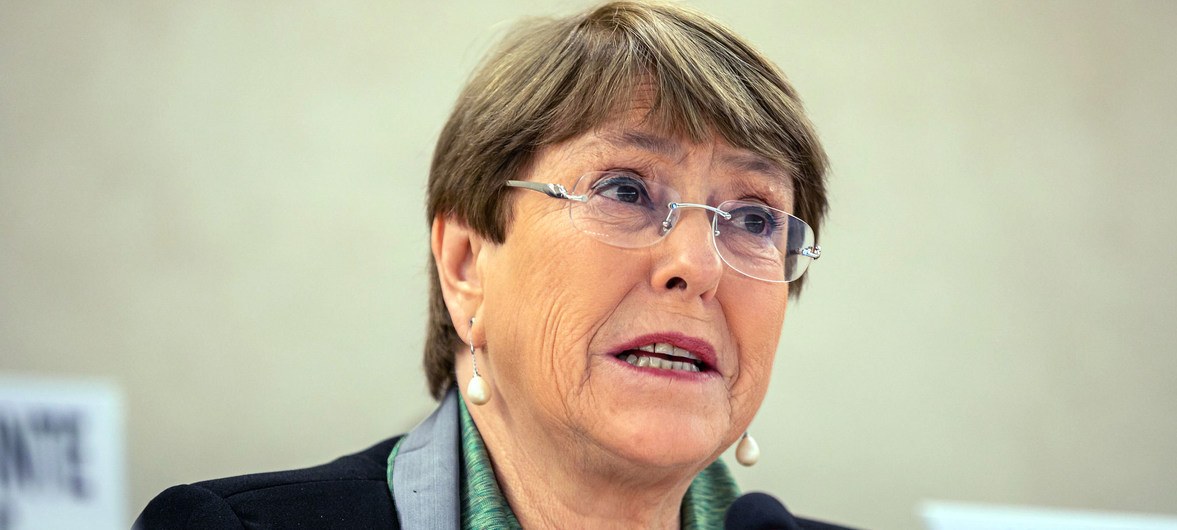United Nations (UN) High Commissioner for Human Rights Michelle Bachelet yesterday urged President Rodrigo Duterte to “refrain” from signing the recently-passed anti-terrorism bill, which would violate human rights and endanger the lives of legitimate activists.
Read: Anti-terrorism bill hurdles through Congress, awaits Duterte’s signature
Bachelet yesterday presented her office’s report on the situation in the Philippines at the 44th regular session of the UN Human Rights Council in Geneva, where she said the anti-terrorism bill would dilute laws while broadening the definition of terrorism. The bill, which proposes suspects to be detained without a warrant for up to 24 days, “may violate the principle of legality,” she said in her report.
“The recent passage of the new Anti-Terrorism Act heightens our concerns about the blurring of important distinctions between criticism, criminality, and terrorism,” the UN official said during her presentation.
She added that if Duterte signs the bill into law, it would leave “a chilling effect on human rights and humanitarian work, hindering support to vulnerable and marginalized communities.”
Read: Dude’s Got Priorities: Duterte certifies anti-terror bill urgent despite public protests
Instead of signing the bill, Duterte should instead come up with “a broad-based consultation process to draft legislation that can effectively prevent and counter violent extremism, but which contains some safeguards to prevent its misuse against people engaged in peaceful criticism and advocacy.”
Congress passed the anti-terror bill after Duterte certified it as urgent, ignoring the widespread protests against it. The president has until July 9 to sign the bill; if he does not veto it, it would automatically become law.
Meanwhile, Bachelet also criticized the Duterte government’s bloody war on drugs. Her report alleged that Filipino cops planted pieces of evidence to make drug suspects appear guilty of their crimes. It also said that many drug raids were conducted without a warrant of arrest.
She said in her presentation that Duterte’s drug war disregards “the rule of law, due process and the human rights of people who may be using or selling drugs. The report finds that the killings have been widespread and systematic – and they are ongoing.”
Bachelet added that at least 73 children have been killed in drug raids, the youngest of whom was five months old.
As expected, Philippine Justice Secretary Menardo Guevarra rejected the conclusions made by Bachelet’s report, and said that it finds “no anchor in a system that provides every avenue to examine, establish and pursue a claim of wrongdoing by a State actor, if such claim is substantiated with facts”.
The Duterte government launched its bloody drug war in 2016, where thousands of drug suspects have allegedly been summarily executed by members of the Philippine National Police. The authorities continue to insist that many of the killings occurred because the suspects fought back (“nanlaban”), an excuse that many Filipinos have become skeptical of.
A preliminary investigation on the drug war is also being conducted by the International Criminal Court (ICC), where the Philippines used to be a member. Duterte unilaterally decided to exit from the ICC in 2019 after accusing the Netherlands-based tribunal of making “baseless, unprecedented, and outrageous attacks” against him and his government.





Reader Interactions